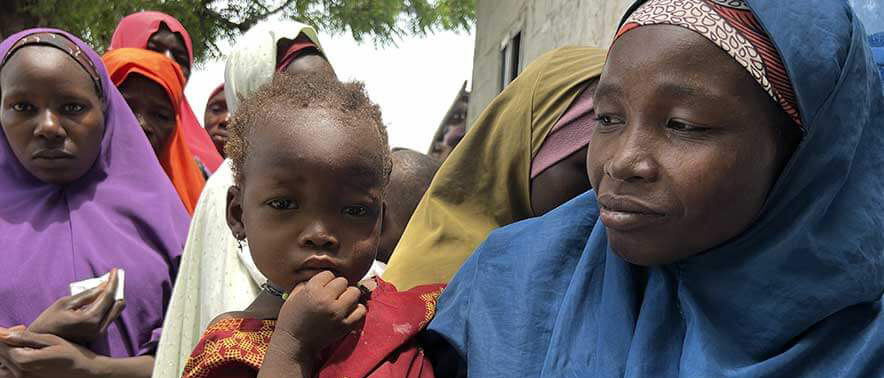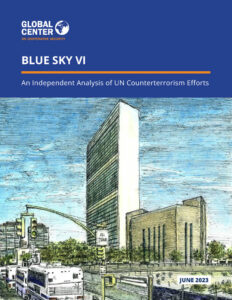Over the last decades, the threat of terrorism has become more diverse, dispersed, and complex. Traditional military and security-centric approaches to dismantling terrorist organizations may diffuse the threat, but they are also inherently reactive and have reinforced cycles of violence. To effectively prevent and mitigate terrorism, the Global Center believes that governments, civil society, and the private sector need to work together to address the conditions of instability and injustice that allow terrorist groups and ideologies to emerge and expand in the first place. In a Security Management article, Executive Director Eelco Kessels outlines the Global Center’s work focusing on women’s roles in preventing violent extremism, countering terrorism financing, improving criminal justice systems, and engaging with youth leaders. It describes the organization’s capacity to lead innovative programs that serve communities and groups most affected by conflict and terrorism.
The United Nations organized the Third Counter-Terrorism Week and High-level Conference of Heads of Counter-Terrorism Agencies of Member States at its headquarters in New York under the theme of “Addressing Terrorism through Reinvigorated Multilateralism and Institutional Cooperation.” The Counter-Terrorism Week and High-Level conference coincided with the adoption of the eighth review of the United Nations Global Counter-Terrorism Strategy on 22 June.
Throughout the week, the Global Center emphasized the importance of inclusive, human rights-based counterterrorism efforts and the need to engage civil society at all stages of counterterrorism policy and program design and delivery in a safe, sustained, and meaningful manner. The recently released Blue Sky VI report provides an independent analysis of the UN’s counterterrorism efforts, progress made since the seventh Strategy review in 2021, and recommendations to inform necessary improvements. Following the conclusion of the eight review process, Global Center Executive Director Eelco Kessels and Chief of Strategy Melissa Lefas provided further reflections in an Just Security article.
At the High-Level Conference:
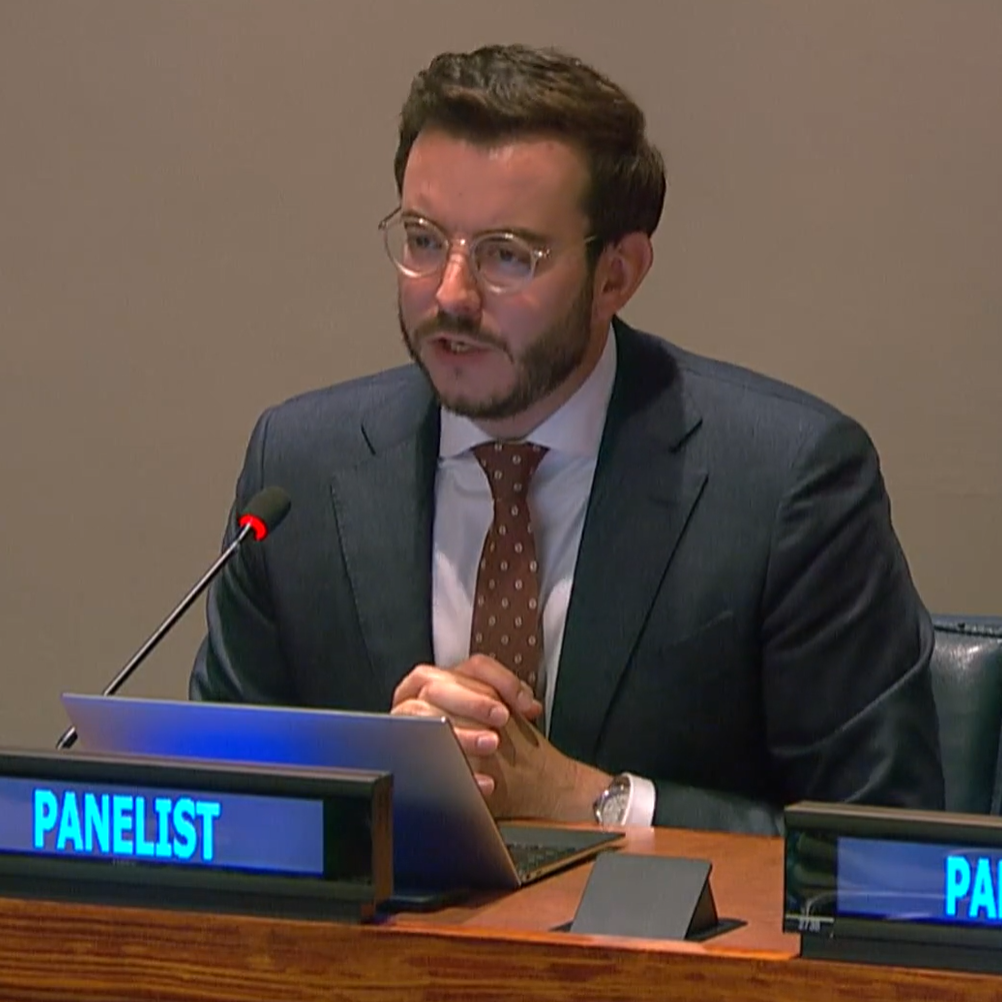
Eelco Kessels was a panelist during session 1 on “Multistakeholder Engagement in Countering Terrorism while Ensuring Compliance with Human Rights and the Rule of Law.” In his remarks, Mr. Kessels highlighted the need to create an enabling environment for civil society to engage in counterterrorism efforts as a prerequisite for effective multistakeholder engagement. Their participation must occur at all stages of counterterrorism policy and program processes: from diagnosing the problem; to designing, developing, and implementing policy measures and community-centric programming; and evaluating the impact of policy and practice on communities affected by terrorism and counterterrorism alike, to understand both its positive and negative impacts.
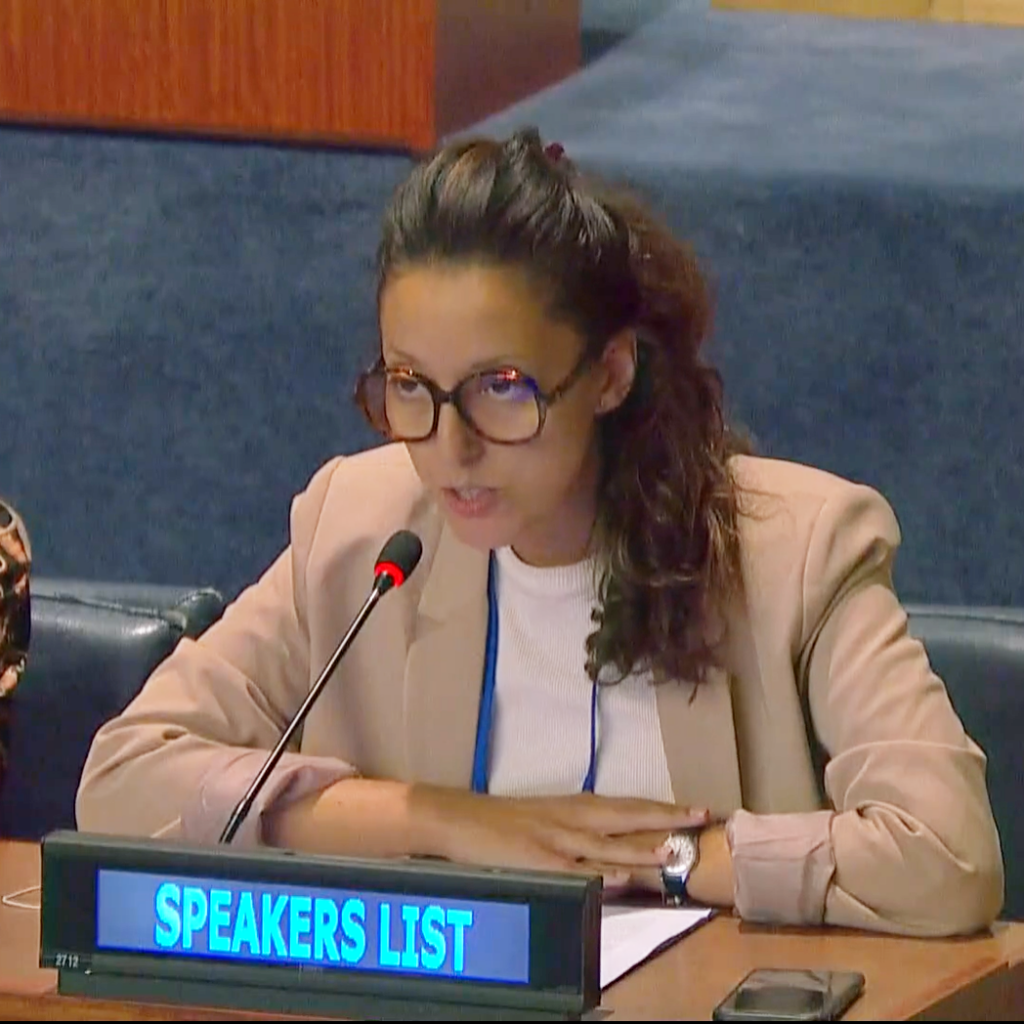
Jihane Ben Yahia, Senior Legal Analyst with the Global Center, delivered an intervention during the conference’s fourth session on “Strengthening Capacity Building Programmes – Making Them Fit for Purpose to Meet Resilience Gaps.” Building on the organization’s 19 years of experience, she emphasized that the common goal in all counterterrorism capacity development should be to build effective, accountable, and inclusive institutions at all levels, in line with Sustainable Development Goal 16 and in furtherance of human rights and human security.
Over the course of the week, Global Center staff participated in a number of side events organized by member states, UN entities, and civil society organizations, including:
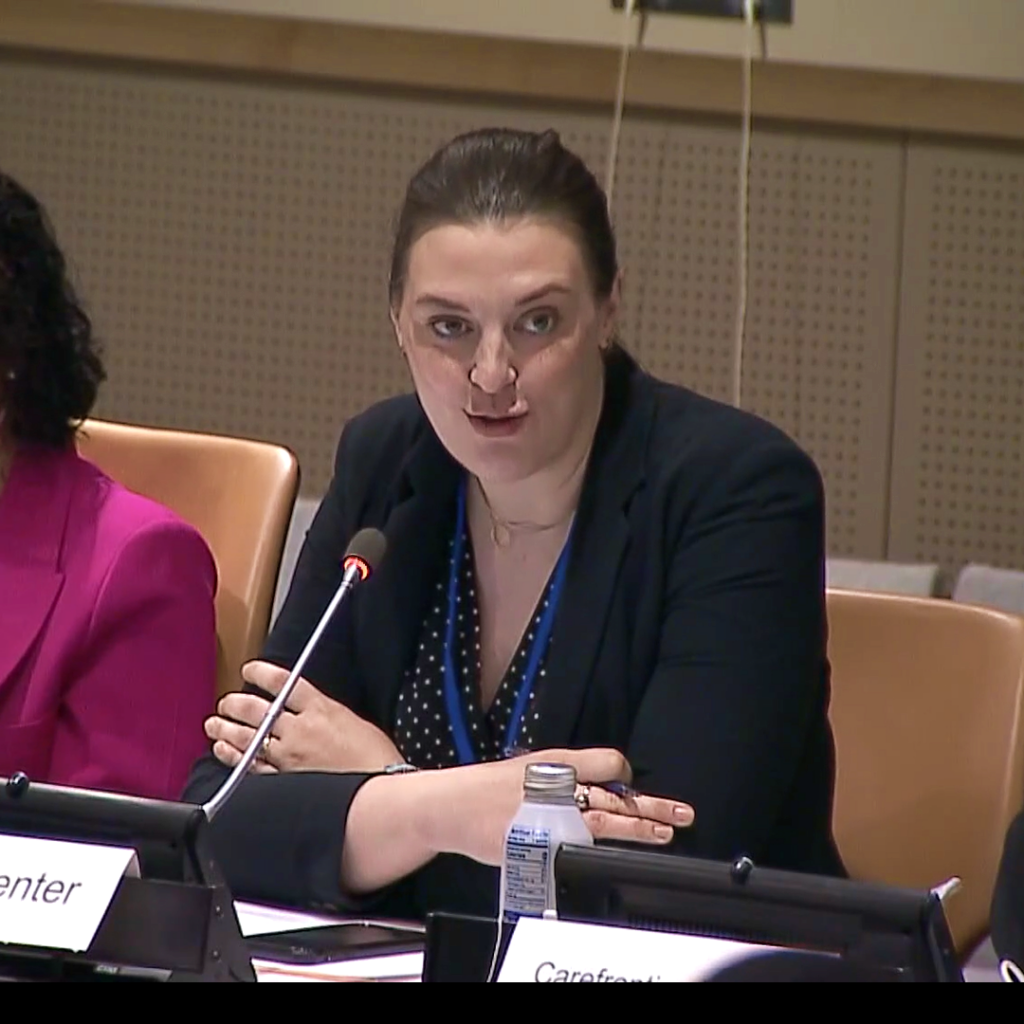
Franziska Praxl-Tabuchi, Global Center’s Director of Multilateral Relations, joined the Launch of the Global Study on the Impact of Counter-Terrorism on Civil Society and Civic Space, and provided remarks which reflected on the need to remove barriers to civil society engagement and improve the environment to enable their participation.
Saeida Rouass, Global Center Senior Programs Officer, spoke at a side event which examined good practices for managing violent extremist prisoners. She shared several lessons learned from the Global Center’s work with the prison services of Morocco, Indonesia, and Kenya, including the importance of developing long-term institutional partnerships and the value of specialist assistance alongside core trainings for general prison staff.
The Global Center co-organized a hybrid side event with Office of the United Nations High Commissioner for Human Rights and the governments of Costa Rica, Denmark, and the Kingdom of the Netherlands. The event focused on inclusive civil-society engagement to support rights-based counterterrorism efforts at the United Nations and featured a panel of diverse civil society speakers. The panel was comprised of Mavic Cabrera Balleza, Founder and Chief Executive Officer, Global Network of Women Peacebuilders; Maji Peterx, Preventing and Transforming Violent Extremism Lead Facilitator and Coordinator, Carefronting Nigeria; and Khalid Ibrahim, Executive Director, Gulf Centre for Human Rights. The discussion brought forth practical recommendations to remove barriers to civil society engagement with the United Nations, including the importance of multidirectional information sharing, improved risk assessment and protection measures, and offering varied methods and platforms for input and participation. The event is part of an ongoing scoping project that the Global Center is conducting in partnership with Rights and Security International.
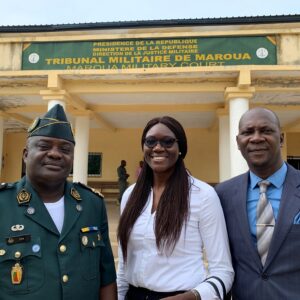
It is in this context that in 2017 we were invited to partner with Cameroon’s National School of Administration and Magistracy (ENAM), the official training program for Cameroon’s public servants. Within ENAM, we established an expansive human rights-based training program for judges and prosecutors, governmental authorities, investigators, and civil society actors; a curriculum now taught to all incoming recruits as well as seasoned officers. Our legal team has since trained hundreds of Cameroonians of various sectors who are active in the country’s long-term security and governance efforts. We continue to deepen our programming in partnership with Cameroonian experts and institutions, including recently developing an anti-torture course for investigators.
Our legal team built a groundbreaking network of 180 judges, attorneys, traditional authorities, and civil administrators to address governance and security challenges facing communities impacted by Boko Haram. The insights garnered through this community-based network directly informed our draft of a new law that adequately harmonizes existing Cameroonian legal frameworks with international human rights standards which has been submitted to the President.
Building on these successes, we funded local organizations working to enhance community resilience in regions impacted by Boko Haram and ISIS West Africa. Through our subgrants program, we supported 13 grassroots organizations promoting peacebuilding and governance—from the launch of a peace radio station to a leadership development program for women who are responding to local security challenges. This work continues through our support to USAID’s multiyear programming in the country. The Global Center has unique access and influence, thanks to our privileged role serving as one of only two independent organizations in the country funded by the U.S. Department of State to support Cameroonian security efforts. This program has strengthened collaboration among governance, justice, and community actors, and significantly contributed to the country’s long-term efforts to prevent violent extremism and build sustainable peace.
The threat of violent extremism, porous borders and vast coastlines, and interconnectivity by land, sea, and air has caused Indonesia, Malaysia, the Philippines, Singapore, and Thailand to adopt strong governmental approaches to tackling violent extremism and terrorism within their jurisdictions. This report explores practical examples of how governments and civil society have cooperated across Southeast Asia to support the rehabilitation and reintegration of individuals associated with violent extremism, including prisoners, detainees, and returnees. The case studies featured are examples of how governments and civil society have approached rehabilitation and reintegration across the five countries of focus, but are not intended as an assessment of the success or propriety of the actions taken nor as an embrace of the approach. Rather, they are meant to highlight discrete elements that may be informative as stakeholders consider ways to advance cooperation between governments and civil society.
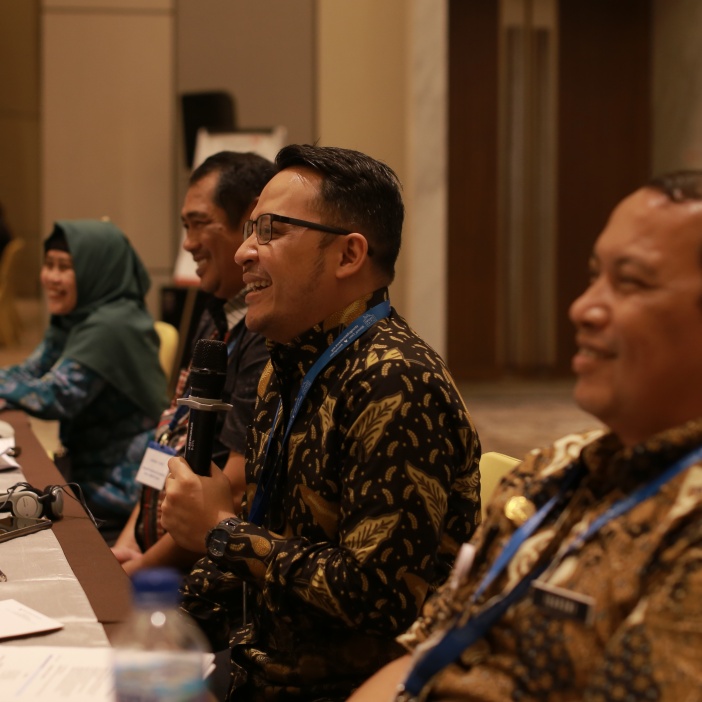
The Global Center is an implementing partner of the Strong Cities Network, which facilitates collaboration between municipal governments and civic leaders on violence prevention initiatives. Launched in 2015 at the UN General Assembly to mount a city-led response against hate, polarization, and extremism, the SCN now includes 140 local governments, from small municipalities to megacities.
We are helping grow the network by engaging municipalities from Central and Southeast Asia; by joining, governments and civic leaders have access to regional dialogues and city visits that facilitate effective strategies across cities. As part of this work, we also allocate small grants for community-led initiatives in Indonesia, Malaysia, and the Philippines.
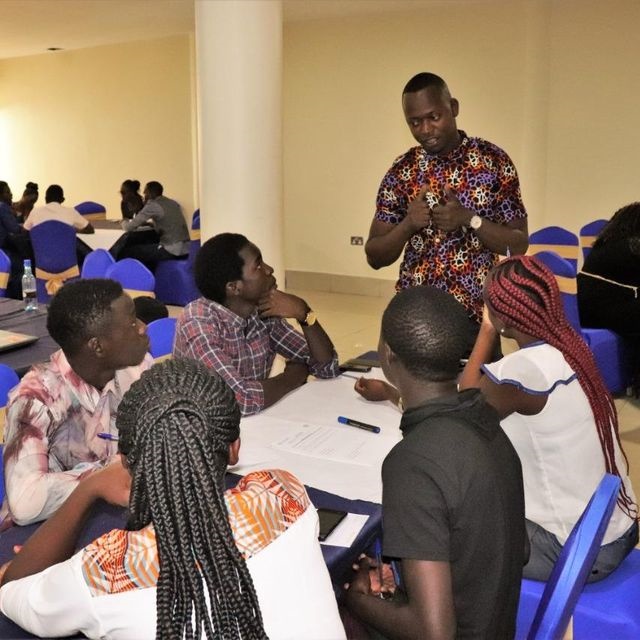
Through our work around the world, we witness how young people are primary targets of armed groups of all stripes. This is notably true for violent extremist networks, which tend to focus their recruitment on individuals between 15 and 30 years old. This is evident among al-Shabaab and Boko Haram in Kenya and Nigeria, respectively, which capitalize on young people’s sense of economic, social, and political marginalization and despair.
Young people also play pivotal roles as leaders for positive change. Both Kenya and Nigeria have a vibrant, youth-led civil society landscape, which has proven critical to building and sustaining resilient communities. Yet civil society—particularly youth people—working in communities impacted by violent extremism often struggle to secure and sustain the funding required to maintain long-term programming and establish formal organizations. Many civic and nonprofit leaders are not connected to regional or national communities of practice, much less international networks—hindering their ability to contribute to and capitalize on peer expertise and resource-sharing.
It is in this context that we recognized the opportunity to invest in the next generation of change-makers and peacebuilders in Nigeria and Kenya. With a focus on organizations in regions with high levels of violent extremist activity, we made a multi-year commitment to twenty grassroots violence prevention initiatives, including through the provision of small grants, capacity development, and networking and mentoring opportunities. Our partnership effectively equipped youth Nigerian and Kenyan leaders with the skills, networks, and resources to address community grievances, stand up localized communities of practice, and ultimately stem the growth of extremist violence.
Our capacity development and training programs draw heavily on train-the-trainer and other peer-to-peer models to help ensure ownership by participants as well as the sustainability of these programs after our role formally ends. These workshops included an innovative peer exchange: Kenyan facilitators traveled to Nigeria and Nigerian facilitators traveled to Kenya, with both leading workshops to share their insight into combatting the strategies and methods used by al-Shabaab, Boko Haram, ISIS, and al-Qaeda. The program presents a successful new model for grantmaking that foregrounds hyper-local community and youth engagement as requisites in preventing violent extremism. Further, the framework for pairing regions and countries on the basis of shared experiences is easily replicable.
As policymakers and practitioners in Southeast Asia increasingly recognize the importance of investing in preventing and countering violent extremism (P/CVE) measures, it is critical to integrate a gender analysis when developing related national action plans, strategies, and programs. This policy brief examines key challenges, gaps, and needs of national and regional stakeholders and concludes with recommendations for these actors to consider in advancing gender sensitive P/CVE policy and practice in the region. The brief draws on desk research and extensive consultations with a range of civil society actors, experts, policymakers, and practitioners from the region, including a regional workshop and gender-sensitive P/CVE projects undertaken by local civil society organizations, supported by the Global Center and the government of the Netherlands.
As governments consider effective responses to violent extremism, they must also decide how best to deal with those who have committed acts of violent extremism, particularly with regard to their rehabilitation and reintegration. Though it is their mandate, governments cannot undertake the rehabilitation and reintegration challenge alone. Civil society organizations can be well-placed to assist with or lead on various components and should be involved in planning and implementation. This action agenda builds on a 30 month project funded by the U.S. Department of State to explore the role of civil society organizations in rehabilitation and reintegration in three broad regions: the Sahel, the Greater Horn of Africa, and Southeast Asia. The action agenda offers guiding principles, recommendations, and examples to help stakeholders shape rehabilitation and reintegration practices and better incorporate the experiences and knowledge of civil society organizations.
Civil society organizations represent a bulwark against violent extremism. Civil society organizations across South and Central Asia, many of which focus on development, conflict prevention, peace-building, and human rights, have leveraged their experience in these areas to develop innovative preventing and countering violent extremism (P/CVE) programs targeting a broad spectrum of issues confronting their communities. These initiatives include producing educational entertainment that challenges extremist narratives, improving relationships between communities and local government, and promoting research and understanding to better recognize local factors contributing to the spread of violent radicalization.
To help advance these efforts, the Global Center with support from the U.S. Department of State, undertook a two-year program to support civil society organizations in South and Central Asia in the development of contextually tailored and locally relevant responses to violent extremism. It concludes with key recommendations for policymakers, practitioners, and donors to consider as they look to initiate or increase support for P/CVE initiatives in South and Central Asia.
Combined with a history of violent conflict, the greater Horn of Africa subregion has offered an enabling environment for violent extremism for more than a half century. The Global Center and partners recently conducted a pilot demonstration project in coastal Kenya and Somaliland and produced this report, which offers insight into local perceptions of violent extremism and details an approach to countering the phenomenon based on key drivers identified by participating communities.
This report presents the findings of a pilot demonstration project conducted by the Global Center to assess community attitudes towards violent extremism and the impact of international prevention programming undertaken in Kenya and Somaliland. The report offers a series of recommendations on how relevant international actors can best contribute to context-sensitive CVE programming in partnership with local communities.
This short film was produced to capture local perspectives on the impact of violent extremism on their communities. Community activists, religious and civil society leaders, and local experts from Nairobi and Coast Province share their thoughts and suggest ways to overcome challenges in the Kenyan context. It can be viewed at: https://vimeo.com/56780867.
